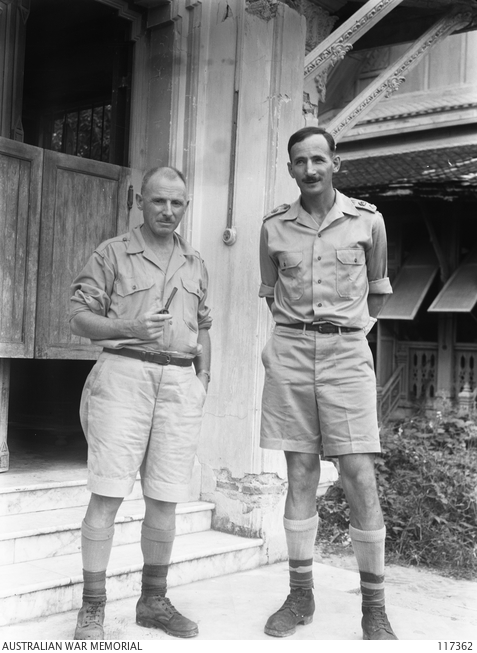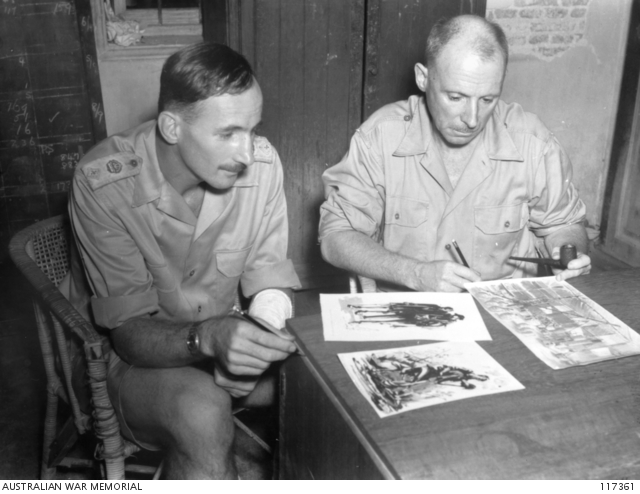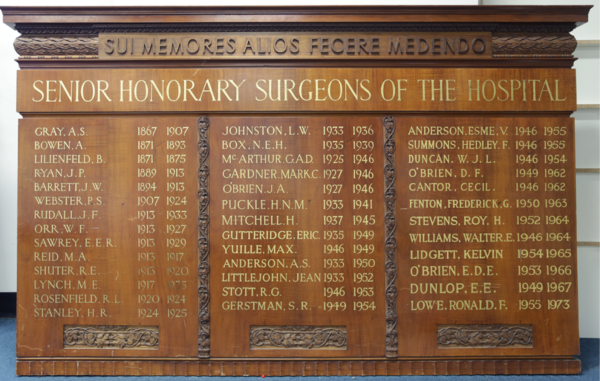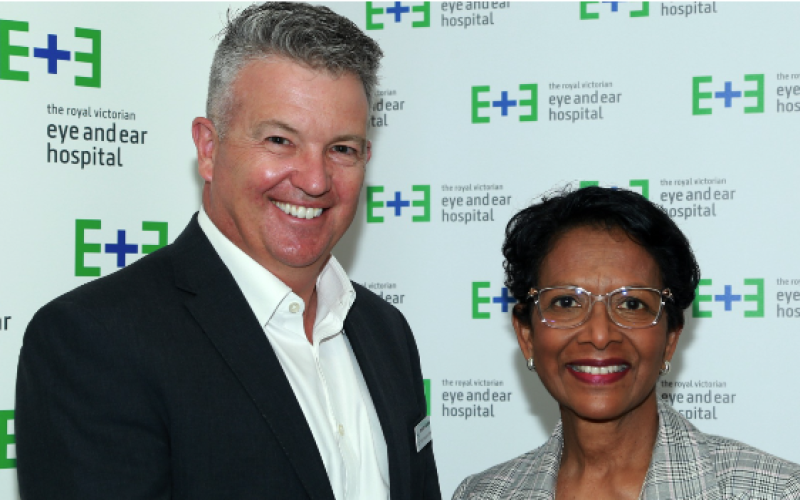Today on ANZAC Day, our national day of remembrance, The Royal Victorian Eye and Ear Hospital (Eye and Ear) pays tribute to those who have served and sacrificed, past and present, through war and peacekeeping.
This ANZAC Day, we reflect on the life and legacy of Sir Ernest Edward ‘Weary’ Dunlop who worked as an ear, nose and throat specialist at the Eye and Ear for nearly 20 years after serving in World War II where he survived as a prisoner of war.
Born in Wangaratta Victoria in 1907, Edward grew up and went to school around Benalla and Stewarton in regional Victoria. He moved to Melbourne in 1926 where he completed his studies in Pharmacy, winning a scholarship and a college medal for his efforts.
Following this, the young Edward decided to become a doctor and transferred to the University of Melbourne in 1929 via another scholarship. During initiation, he was given the nickname ‘Weary’ as a reference to sharing a name with Dunlop Tyres, a play on words from tyre, to tire, to weary.
Weary was an athletic man, known for boxing and rugby during his university years and declined a spot in the Australian Rugby team in 1933 as he was concerned it may affect his studies. He graduated with first-class honors in 1934 and joined the Australian Army Medical Corps in 1935 as a Captain.

He served all over the world including London, Palestine, Gaza, Greece, Crete, and finally, Java, where he and 2700 other allied soldiers were captured by the Japanese as they took over Indonesia in 1942.
Designated as a senior Allied Officer of the Bandung prisoner-of-war camp, Weary worked with colleagues to organise facilities for the sick and proper hygiene and sanitation. He was a selfless and courageous man who stood up for patients, held negotiations for better rations for his men and used his own money to buy additional food for sick prisoners of war.
In 1943 he and his men were transferred to Singapore and then to Thailand to work on the Burma to Thailand railway. The conditions working at the railway were incredibly harsh, with little food, terrible working conditions and disease running rampant through the POW camps. Just under 100,000 prisoners and labourers died.

Weary’s leadership was the driving force behind the survival of the men under his care. Using his position as a medical and commanding officer, he leveraged negotiations with his captors and often endured torture and beatings whilst advocating for his men. He remained a POW until 1945 when the war ended and stayed behind to assist the repatriation of many soldiers.
Upon his return to Australia, he married his fiancée whom he proposed to in 1940 and resumed his medical career as a free man. When settled in Australia, Weary worked as a surgeon at the Eye and Ear, Royal Melbourne and Peter MacCallum.
Weary began his tenure at the Eye and Ear in February 1949 as an Ear, Nose and Throat specialist. He retired in June 1967 after nearly 20 years of service to the Victorian community.

After returning from war, Weary was an advocate for the welfare of past POWs and veterans. He advised the government, lobbied for covered medical care, assisted POWs make war pension claims and was an ambassador for repatriations with Asia. He was revered in Thailand and publicly forgave the Japanese.
Weary was knighted in recognition of his contribution to medicine in 1969, was bestowed the honour of Australian of the Year in 1976 and was made an honorary life member of the Returned and Services League in 1979.
Weary Dunlop’s story is one of many who fought for our country. Today we honour his legacy and the legacies of all service men and women.
They shall grow not old, as we that are left grow old:
Age shall not weary them, nor the years condemn.
At the going down of the sun and in the morning
We will remember them.
LEST WE FORGET
Thank you to the Anzac Portal and Sir Weary Dunlop’s foundation for additional information on Sir Weary Dunlop.


